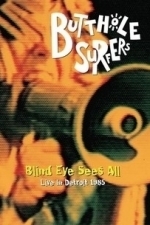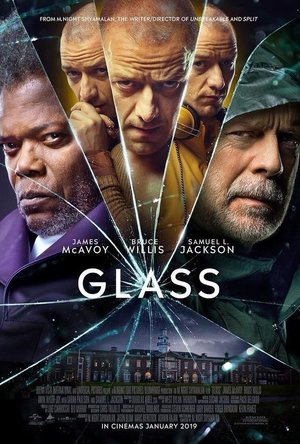Search
Entertainment Editor (1988 KP) created a video about Death Had Quicker Wings Than Love by Marry Waterson & David A. Jaycock in Music
Nov 12, 2017

Steel Profiles Catalogue
Productivity and Utilities
App
This app contains a wide range of structural shape sizes. A simple quick and organised way to have...
![[steel shapes]](/uploads/profile_image/ace/35b7e602-861c-48b3-81d5-f09afd1a1ace.jpg?m=1522327820)
[steel shapes]
Reference and Education
App
Decades' worth of steel shapes data at your fingertips!. Now with the latest AISC v14.1 library,...

Museums 101
Book
Looking for an A-Z, one-stop, comprehensive book on museums? Wish you were able to have one of the...
Movie Metropolis (309 KP) rated Glass (2019) in Movies
Jun 10, 2019
An ambitious but flawed finale
M. Night Shyamalan is back behind the camera! Quick, run! Joking aside, Shyamalan’s career is as convoluted as his signature third-act twists. Starting off with the fabulous The Sixth Sense and then almost derailing his career with catastrophic failures like The Happening, After Earth and dare I mention it, The Last Airbender, it appeared we had all but lost that once promising directorial flair.
Thankfully in 2016’s Split, Shyamalan returned to form somewhat with a nicely paced, tense thriller starring James McAvoy as Kevin, a guy with multiple personality disorder. Of course, the infamous twist, possibly Shyamalan’s best, that this film was set in the same universe as the fabulous Unbreakable was almost too much to handle.
Fast-forward three years and Glass is the film that rounds out the surprise trilogy, bringing together McAvoy, Bruce Willis and Samuel L Jackson for the mother of all showdowns. Or that’s what the trailers would have you believe. But what’s the finished product like?
Three weeks after the conclusion of Split, Glass finds Bruce Willis’ David Dunn pursuing James McAvoy’s superhuman figure of The Beast in a series of escalating encounters, while the shadowy presence of Elijah Price (Samuel L Jackson) emerges as an orchestrator who holds secrets critical to both men. Sandwiched in between this is Sarah Paulson’s Dr Ellie Staple who desperately wants to prove that these men simply hold delusions of grandeur.
As a rule, trilogy closers generally tend to the weakest of the three films with Spider-Man 3, Return of the Jedi and X-Men: Apocalypse cementing my point and Glass unfortunately follows a similar pattern. While by no means a bad film, Shyamalan desperately tries to add too many plot threads into the mix at the end resulting in a messy climax that trips all over itself.
Thankfully, the first act, and the majority of the second live up to expectations. James McAvoy is absolutely exceptional as Kevin and his multiple personalities. Switching between them at the flash of a light, he is staggering to watch and is the highlight in a film that for the most part, gets the best out of its stars. Samuel L Jackson and Sarah Paulson are great with the former looking like he’s having an absolute blast reprising a role that’s been dormant for 19 years.
The less said about Bruce Willis the better. He seems to be sleepwalking through the entire film, so it’s probably for the best that he appears fleetingly every now and then as this is very much McAvoy’s film.
Glass is a film that is both longer and weaker than its two predecessors but can still get by on its own merits thanks to a stunning performance by James McAvoy
The script is typical Shyamalan. It’s clunky, filled with overly expositional dialogue and sometimes downright jarring, but the intriguing premise allows you to overlook this more often than not. There are some nice touches as Sarah Paulson’s character tries to explain away the powers of the main trio, making them and us as the audience doubt their superhuman abilities.
Those expecting a film packed with action will be disappointed. Glass is very much a character piece. The action that is there is well-filmed and realistic considering the film’s incredibly small budget, but it’s limited to the beginning and end of the movie, though the finale is such a mess that it’s really not worth mentioning.
Much of Glass takes place within the Raven Hill Memorial Hospital and follows Paulson’s daily studies of the trio and while this does dampen the pacing somewhat, it’s a refreshing change to the action-packed blockbusters that we have become accustomed to in the genre.
When it comes to cinematography, again, it’s typical Shyamalan. Long-tracking shots, super close-ups and peculiar camera angles are all present and correct. In Split, the impact of his unusual camerawork wasn’t too grating, but here it creates quite the distraction. There’s also another Shyamalan staple: the director’s cameo. The one in Glass is overly long and completely unnecessary, but it’s something we’ve come to expect over the last couple of decades.
Overall, Glass is a film that is both longer and weaker than its two predecessors but can still get by on its own merits thanks to a stunning performance by James McAvoy, the class brought by Samuel L Jackson and Sarah Paulson and a great sense of ambition. Unfortunately, budgetary restraints have resulted in a film that is subtle to the point of being dull and while praise should be given for effort, Glass proves to be just a little underwhelming.
https://moviemetropolis.net/2019/01/19/glass-review-an-ambitious-but-flawed-finale/
Thankfully in 2016’s Split, Shyamalan returned to form somewhat with a nicely paced, tense thriller starring James McAvoy as Kevin, a guy with multiple personality disorder. Of course, the infamous twist, possibly Shyamalan’s best, that this film was set in the same universe as the fabulous Unbreakable was almost too much to handle.
Fast-forward three years and Glass is the film that rounds out the surprise trilogy, bringing together McAvoy, Bruce Willis and Samuel L Jackson for the mother of all showdowns. Or that’s what the trailers would have you believe. But what’s the finished product like?
Three weeks after the conclusion of Split, Glass finds Bruce Willis’ David Dunn pursuing James McAvoy’s superhuman figure of The Beast in a series of escalating encounters, while the shadowy presence of Elijah Price (Samuel L Jackson) emerges as an orchestrator who holds secrets critical to both men. Sandwiched in between this is Sarah Paulson’s Dr Ellie Staple who desperately wants to prove that these men simply hold delusions of grandeur.
As a rule, trilogy closers generally tend to the weakest of the three films with Spider-Man 3, Return of the Jedi and X-Men: Apocalypse cementing my point and Glass unfortunately follows a similar pattern. While by no means a bad film, Shyamalan desperately tries to add too many plot threads into the mix at the end resulting in a messy climax that trips all over itself.
Thankfully, the first act, and the majority of the second live up to expectations. James McAvoy is absolutely exceptional as Kevin and his multiple personalities. Switching between them at the flash of a light, he is staggering to watch and is the highlight in a film that for the most part, gets the best out of its stars. Samuel L Jackson and Sarah Paulson are great with the former looking like he’s having an absolute blast reprising a role that’s been dormant for 19 years.
The less said about Bruce Willis the better. He seems to be sleepwalking through the entire film, so it’s probably for the best that he appears fleetingly every now and then as this is very much McAvoy’s film.
Glass is a film that is both longer and weaker than its two predecessors but can still get by on its own merits thanks to a stunning performance by James McAvoy
The script is typical Shyamalan. It’s clunky, filled with overly expositional dialogue and sometimes downright jarring, but the intriguing premise allows you to overlook this more often than not. There are some nice touches as Sarah Paulson’s character tries to explain away the powers of the main trio, making them and us as the audience doubt their superhuman abilities.
Those expecting a film packed with action will be disappointed. Glass is very much a character piece. The action that is there is well-filmed and realistic considering the film’s incredibly small budget, but it’s limited to the beginning and end of the movie, though the finale is such a mess that it’s really not worth mentioning.
Much of Glass takes place within the Raven Hill Memorial Hospital and follows Paulson’s daily studies of the trio and while this does dampen the pacing somewhat, it’s a refreshing change to the action-packed blockbusters that we have become accustomed to in the genre.
When it comes to cinematography, again, it’s typical Shyamalan. Long-tracking shots, super close-ups and peculiar camera angles are all present and correct. In Split, the impact of his unusual camerawork wasn’t too grating, but here it creates quite the distraction. There’s also another Shyamalan staple: the director’s cameo. The one in Glass is overly long and completely unnecessary, but it’s something we’ve come to expect over the last couple of decades.
Overall, Glass is a film that is both longer and weaker than its two predecessors but can still get by on its own merits thanks to a stunning performance by James McAvoy, the class brought by Samuel L Jackson and Sarah Paulson and a great sense of ambition. Unfortunately, budgetary restraints have resulted in a film that is subtle to the point of being dull and while praise should be given for effort, Glass proves to be just a little underwhelming.
https://moviemetropolis.net/2019/01/19/glass-review-an-ambitious-but-flawed-finale/

